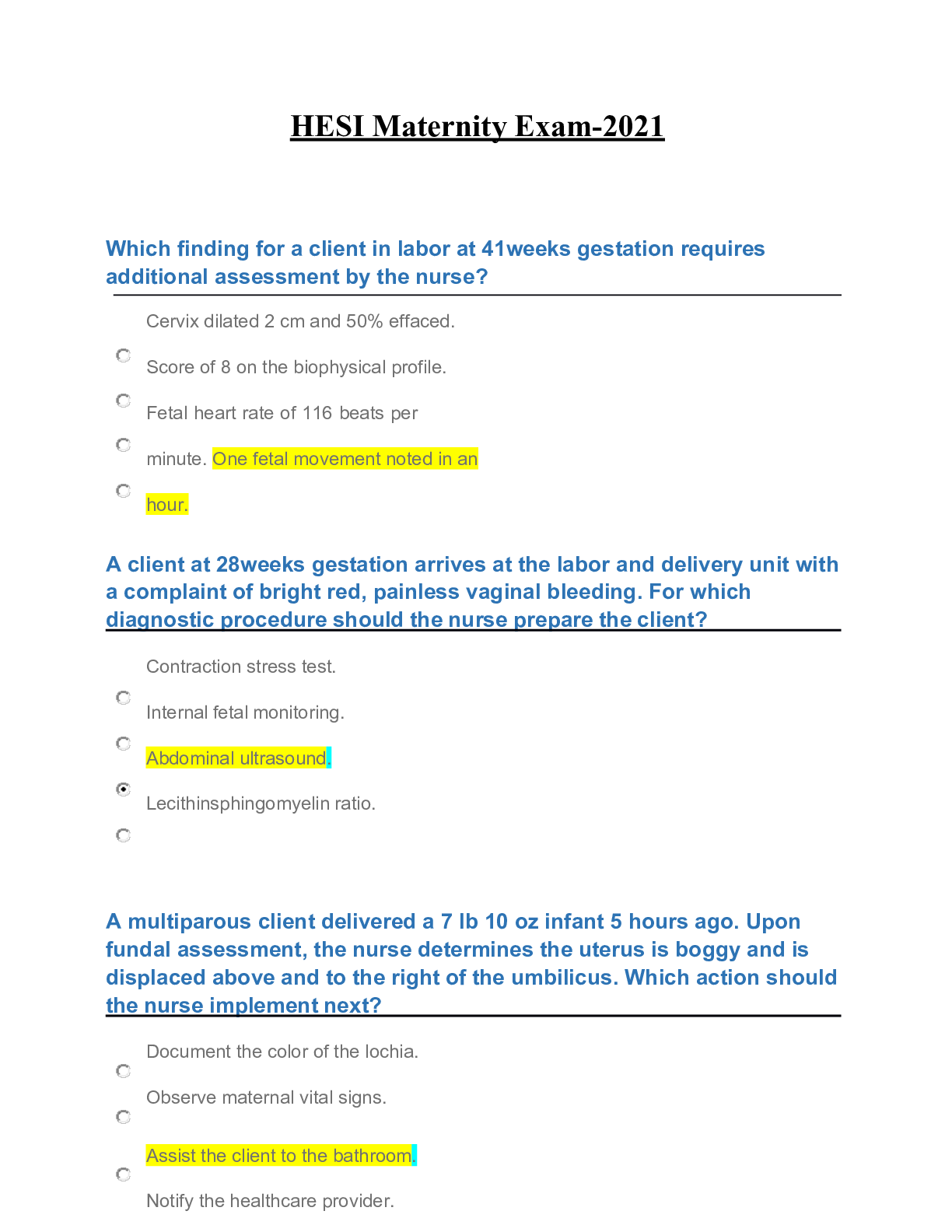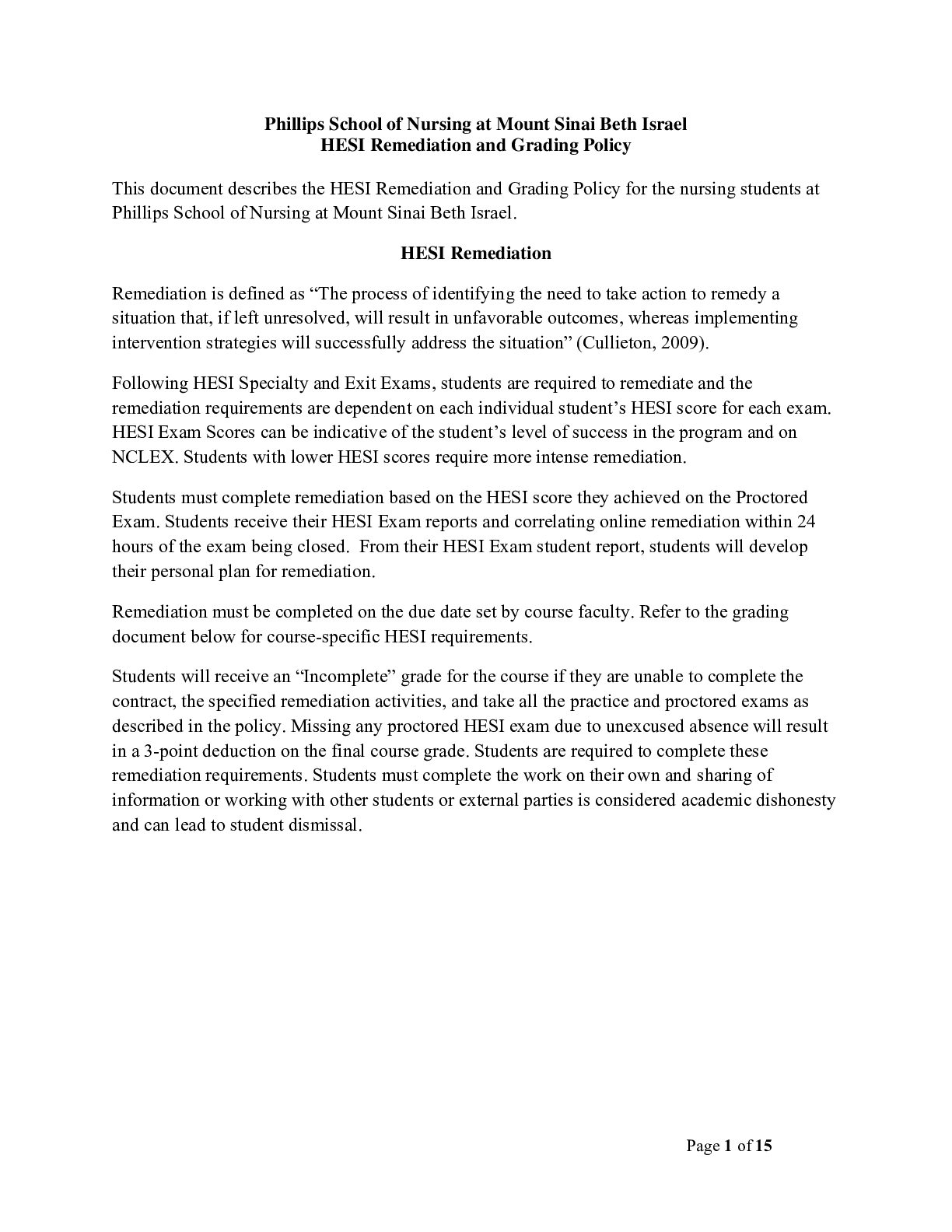HEI PN COMPREHENSIVE EXIT EXAM.docx_2021_12_PAGES
Document Content and Description Below
The nurse is completing an assessment on an older-adult patient who is having difficulty falling asleep. Which condition will the nurse further assess for in this patient? a. Depression b. Mild fa... tigue c. Hypertension d. Hypothyroidism ANS: A Older adults and other individuals who experience depressive mood problems experience delays in falling asleep, earlier appearance of REM sleep, frequent awakening, feelings of sleeping poorly, and daytime sleepiness. A person who is moderately fatigued usually achieves restful sleep, especially if the fatigue is the result of enjoyable work or exercise. Hypertension often causes early-morning awakening and fatigue. Alcohol speeds the onset of sleep. Hypothyroidism decreases stage 4 sleep. 2. The nurse is caring for an adolescent with an appendectomy who is reporting difficulty falling asleep. Which intervention will be most appropriate? a. Close the door to decrease noise from unit activities. b. Adjust temperature in the patient’s room to 21° C (70° F). c. Ensure that the night-light in the patient’s room is working. d. Encourage the discontinuation of a soda and chocolate nightly snack. ANS: D Discontinuing the soda and chocolate nightly snack will be most beneficial for this patient since it has two factors that will cause difficulty falling asleep. Coffee, tea, colas, and chocolate act as stimulants, causing a person to stay awake or to awaken throughout the night. Personal preference influences the temperature of the room, as well as the lighting of the room. Noise can be a factor in the unit and can awaken the patient, but caffeine can make it difficult to fall asleep. 13.A patient has obstructive sleep apnea. Which assessment is the priority? a. Gastrointestinal function b. Neurological function 1 c. Respiratory status d. Circulatory status ANS: C In obstructive sleep apnea, the upper airway becomes partially or completely blocked, diminishing nasal airflow or stopping it. The person still attempts to breathe because the chest and abdominal movement continue, which results in loud snoring and snorting sounds. According to the ABCs of prioritizing care, airway and respiratory status takes priority over gastrointestinal, circulatory, and neurologic functioning. 14. The patient has just been diagnosed with narcolepsy. The nurse teaches the patient about management of the condition. Which information from the patient will cause the nurse to intervene? a. Takes antidepressant medications_ [Show More]
Last updated: 2 years ago
Preview 1 out of 12 pages

Buy this document to get the full access instantly
Instant Download Access after purchase
Buy NowInstant download
We Accept:

Reviews( 0 )
$14.00
Can't find what you want? Try our AI powered Search
Document information
Connected school, study & course
About the document
Uploaded On
Sep 04, 2021
Number of pages
12
Written in
Additional information
This document has been written for:
Uploaded
Sep 04, 2021
Downloads
0
Views
84







